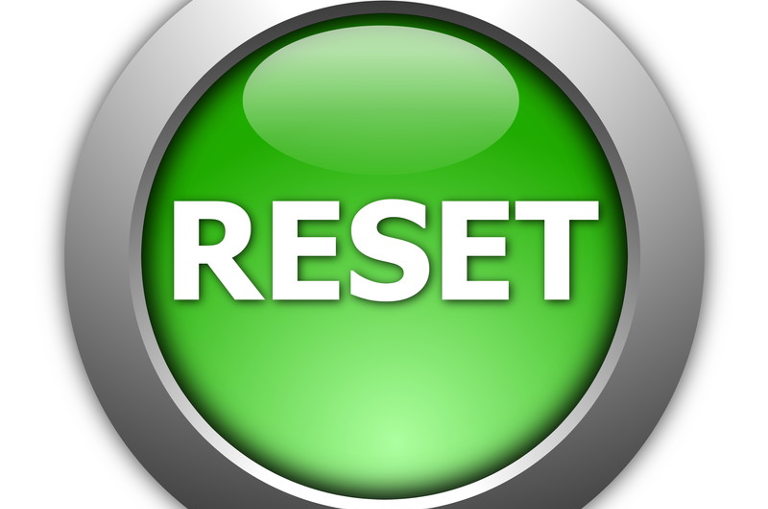So now that the spread of coronavirus is slowing a bit in China, the Chinese government is beginning to ramp back up its manufacturing facilities. However, given the shutdowns in the largest exports markets in Europe and U.S., the demand for Chinese products is still way down.
Right now, while factories have slowed or shut down in China, Europe, the U.S. and other places, would be a perfect time to put a lot of people to work upgrading and improving energy efficiency and pollution control measures, and installing renewable energy options in the furloughed factories around the world. This should be a component in any economic stimulus package and it should be acted on right now while people desperately need jobs and the factories are in time out.
In addition, though we are still in the acute crisis and that must be the primary focus of action just now, it would make immanent sense to begin very thoughtful, visionary yet practical strategic planning effort for how we might be able to come out the other side of this with much healthier, saner and resilient economic systems.
It should serve as a stunning existential wake up call that the only real winner in this crisis at this point is the planet. Air pollution is down, climate change emissions have dropped precipitously, water pollution is down – the canals of Venice actually look like water again! Even wildlife trafficking and consumption is down. All of this is happening because we’ve been forced to push pause on an economic system that “creates” stuff at the price of destroying natural systems and our planetary life support structures. The respite being delivered by the pandemic-induced time-out could be no clearer evidence that we have built a global economy that is dependent upon the destruction of our planetary life-support systems.
The Coronavirus is the most immediate, but it is not the biggest threat before us. The bigger issue, and far greater challenge and opportunity, is what the COVID-19 crisis reveals about our fundamentally unsustainable, consumption-driven global economic system. If we really open up to taking a hard look at that, we have the potential to shift from crisis to evolution.
As nations begin to think through how to ramp up economic activity in the wake of the pandemic we will likely hear the dangerous but familiar rallying cry of “buy, buy, buy, grow, grow, grow.” If the sole focus is to just get things going like they were before we will simply return to the perilous delusion that economic growth trumps the health of the planet. We must get very clear and innovative in considering the type of economic growth we want and the type we do not want, such as highly polluting, poor paying industries and disposable plastic widgets.
I’ll be posting a more detailed piece of growth of what and for what in days to come. In the meantime, I see four major steps and opportunities in handling this crisis.
- First, put everything into controlling the virus and protecting front-line workers and directly supporting people who have lost jobs and income. The Trump administration failed us disastrously by, once again ignoring science and the advice of advisors who were urging major action as early as January – now we need a full-court press to catch up. At the same time we need aggressive, non-pork economic support and stimulus. Congress just passed a massive and essential economic stimulus package. It remains to be seen exactly what is in it but it does include direct payments to citizens and I am delighted to note, it does not include bailout of the cruise ship industry.
As soon as we can get better access to testing and masks, etc., there should be a massive retraining of workers from currently devastated industries like restaurant and hospitality into health care and elder care support positions.
Given that President Trump finally listened to scientific advisors and acknowledged that the health threat will require the social distancing policies for at least another month, the economic implications for the record number of laid off workers is going to be very severe. We will need a number of additional stimulus packages just to help people meet basic shelter and food needs. As I wrote in an earlier post, this is a time we should be seriously considered a Guaranteed Basic Income approach.
There will likely also need to be measures to try to prevent implosion of the banking and financial transaction systems. We must not let this implode to the point where banks lock people out of accounts, ATMs are shut down, etc. as has happened in the collapse in Greece in 2015.
- Second, as I noted above, while industry is at a slow down this is the time to put people to work upgrading, cleaning up and reducing carbon footprints of manufacturing facilities. Funding for these measures would be a smart component of governmental economic stimulus packages.
- Third, develop and invest in a massive workforce transformation campaign. This should include some of the lasting changes that are likely to result from this unprecedented time such as the shift to remote working, the increase in online shopping and associated delivery options. Another aspect of this should be an aggressive shift from employment in non-essential, highly polluting industries to employment that is productive for society.
- Fourth, as we clear the immediate crisis, gain control of the virus, develop a vaccine, we need to be very strategic about the kind of economic growth we pursue. This would be the perfect time to implement some version a Green New Deal that would provide jobs, business opportunities by tackling climate change, income inequality and the poverty pandemic.
Some areas to consider. The coal industry continues to clamor for governmental aid to overcome a steep decline in demand due to growth in renewables and the natural gas boom. The coal industry makes the claim that it absolutely critical to securing a domestic supply of affordable electricity and providing jobs. Based on this claim, as reported by Reuters, the industry has requested executive action from the President to suspend or reduce royalties and reduce its legal obligations for environmental clean up of mining sites and health assistance to victims of black lung disease.
Meanwhile the renewable energy industry is facing severe downturns as a result of the pandemic. The Solar Energy Industries Association has reported the solar industry could lose up to half its workforce due to the virus because a significant share of solar jobs is dependent on large projects being built that are likely to be out on hold. Similarly, the wind industry was set to have a record-breaking year this year but is now facing massive scale backs due to the virus.
As we think through how to keep people employed and get them back to work here’s an interesting comparison. According to the Bureau of Labor Statistics, the coal industry employed 50,600 people in February, down 35 percent from ten years ago. According to the Energy Information Administration coal-fired power plants generated 23.5 percent of U.S. electricity last year, down from over 44 percent ten years earlier.
By contrast renewable energy has been growing steadily. It produced 17.5 percent of U.S. electricity last year. According to the Solar Foundation, solar alone employed over 249,800 people in 2019. Add wind, geothermal, etc. and it is clear renewables dwarfs coal in employment. An another fossil fuel note, the oil industry has been massively subsidized by the federal government for decades and with new technologies in drilling there is now a global glut of oil and prices have plummeted. Not even accounting for the environmental damage caused by fossil fuel extraction and consumption, the economics don’t add up.
It seems to me a solid plan to add stimulus to industries of the future and to support people currently employed in industries that are in decline to transition into new, more needed and secure career tracks.
Another aspect of Green New Deal type of stimulus package could include attaching strong climate, environmental and fair labor requirements to industries that do get bail outs and stimulus funding. After the 2008 financial crisis, President Obama required General Motors and Chrysler to implement stringent new fuel economy standards in exchange for the bail-out money they received. This was a huge step forward in auto efficiency and competitive strength for the U.S. auto industry.
Make no mistake, this current economic time-out is going to have lasting effects and it is going to require massive public investment and rethinking to recover. Now it the time not just to try to go back to normal, but to stimulate economic growth that will benefit all of society. This is the time to create jobs doing what society needs to have done – rebuilding our infrastructure in a way that reduces global warming pollution, cleans our air and water and increases resiliency to the environmental changes already underway, building and repairing affordable housing, restoring wetlands, rivers, forests and beaches, strengthening local agriculture and community businesses, caring for our elderly populations.
If this seems too big to take on remember, the coronavirus pandemic is a force of Nature; the economy is not! The economy is a human construct. We created it and we change and shape it all the time. We invented it so we can reinvent it. The goal should not be to restart the economy but to reset it.
—
A final note: down the road a ways we are going to need to figure out how to deal with a staggering amount of national debt by most major nations. Prior to the pandemic crisis a vast percentage of the much-touted growth in GDP has been accomplished through unprecedented increases in debt. Debt is now growing at a skyrocketing scale with the various stimulus and bailout measures that nations of the world are implementing to deal with the coronavirus situation. On the other side of the crisis the debt burden will be a truly unmanageable and unstable situation, which, though tricky, is yet another potential lever for fundamental economic reset. I will be doing an article about the need to shift past GDP, and especially debt-driven growth, as a metric of economic success in my next article.
BE WELL Everyone!





